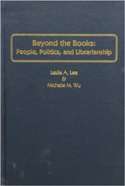This story in the New York Times the other day:
Haste, Scorned: Blogging at a Snail’s Pace
basically talks about leisurely, reflective and in-depth writing in blogs and calls it "Slow Blogging", or rather picks up that term from a few people who adhere to this approach, including some guy who wrote a "slow blogging" manifesto.
I guess it can be useful giving anything a handy label, and "slow blogging" might be useful to distinguish these types of blogs from the now-too-common "two lines and a link" (my jargon!) blog of the "Here's an interesting story about XYZ: [WITH A LINK]", which seems to be what many blogs are.
But, and I don't think anyone interviewed in the NYT article points this out, blogging used to be viewed, at least early on, and the ultimate self-publishing format, and was seen as an alternate to traditional media, though it was then shortly criticized for being mostly self-centered naval-gazing. But, the point is, most blogs used to consist of long postings, and many always have. The better ones in legal education, though they haven't replaced the law review process as some predicited, are auxillary brainstorming forums to the process.
Did I have a point? I guess since I seem to have fallen into a once-a-week average posting, after a pretty prolific October, I was somewhat happy to see my pace (or lack of pace) of posting to be justified as a "movement".
What the article didn't mention is whether there's been any study of the lengths of post in relation to their frequency on different blogs. When I get started, I can write up a storm so I would rank high in that comparison.
The NYT article points out that some blogging, mainly those are consist of short posts to keep friends and family updated, are being displaced by Twitter and such. Similarly, I think the the "two lines and a link" blogs, where people just note an interesting article or web page and try to push people there with just a cursory description (which describe a LOT of law library/librarian blogs) are also going to fall by the wayside - people won't "read" those blogs, but they might follow someone's del.icio.us or digg tagging/accounts/whatever they're called, if they're interested in similar subjects.
Funny, I wrote up the AALL meeting in Portland last summer, including a whole session on those sharing technologies - and I don't even have the jargon down. And there was that discussion on the ALL-SIS list about RSS that somewhat confirmed how little its actually being used by law students. All this points in one direction, and idea for an article I had a while back: all these technologies that get hyped when they're the newest thing are reall just "Solutions in Search of a Problem" (that would be the title of the article).
Tuesday, November 25, 2008
Subscribe to:
Post Comments (Atom)




No comments:
Post a Comment